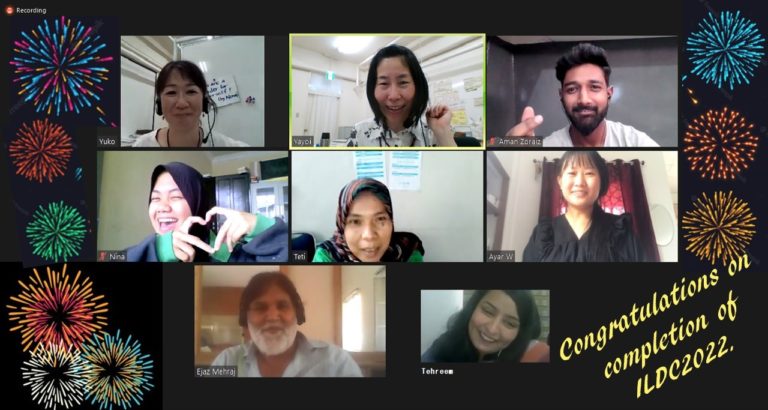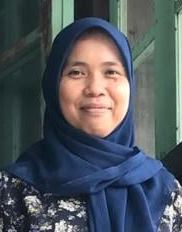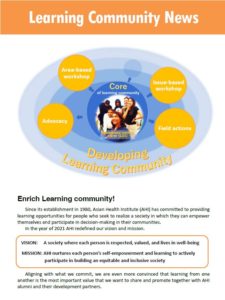Participant’s essay on their learning from ILDC 2022
Learning practiced in the course
International Training Course 2022 on Leadership for Community Health and Development (ILDC) was held by online setting from June 1st to July 2nd. The course theme was “Youth Empowerment for Making Change”.
AHI called for the participants’ teams of two, comprising one
community-based youth group member and one NGO staff member. As a result, 6 participants from 3 countries (India, Indonesia and Pakistan) successfully completed the course.

In the early stage of the course, we discussed to make a mutual understanding of “learning from each other”. We also agreed on the importance of everyone’s participation for that. However, in the middle of the course, some participants were absent due to unavoidable reasons, such as failure of electricity and internet disconnection, etc. We actually had to confront and manage the difficult situations in terms of participatory learning process.
It happens in our usual activities. We spent many hours for discussing how to solve specific challenges that are common among the youth groups on the basis of each experience. That turned into a precious learning to all of us, in that one of the participants (youth group member) decided to facilitate her group members to confront a conflict in her youth group without ignoring it.
Here, we introduce an essay which a participant from Indonesia wrote about her findings from ILDC 2022.
My journey in and after the ILDC
Participating in the ILDC course was my dream for the past a few years. But I could not get a chance in 2020. In 2022 I applied again. I and Nina, a member of youth group from Aceh were given the opportunity to take part in the course.
At first, I didn’t feel confident to keep up with the course. Not because it is long training period, but because of my language barrier, I was worried about not being able to be active in discussion and sharing stories with other participants from various countries.

The limitations of my communication stressed me and wondered how I could learn together with other friends. I prepared myself to prepare with various tools such as google translator and my own vocabulary words notebook in order to answer my friends’ questions. I studied until the evening and watched the video recording again and again because there were many things I wanted to learn. I tried to activelt involved in giving my opinion, but I could not entirely do, often get misunderstood in the discussions. To be honest, a sense of “give up” arose in my mind and wanted to leave out from this course.
However, I was able to finish this course, this was not only because of my enthusiasm to learn, but I was lucky to have full support from the AHI team’s, Yuko, Yayoi and my friends such as Aman, Ayar, Nina, Tehreem and Ejaz. They were so patient when I gave my opinion. They gave me a chance to think and answer the questions from friends, waiting for me to write answers in the chat box. Their support with trust and respect is the most valuable lesson for me. Every human being is important to have a sense of “mutual respect” and “helping each other”. This motivated me to be able to finish until the end.
ILDC was the opportunity to learn what I have never done. For example, it was my first experience to be a moderator in the learning process with friends from various countries. We also learned how to analyze a case to find invisible causes. We discussed how we solve all problems when they occured in community, how we keep members who have different opinions, without dropping them and how “leaders” can bring “openness” to their team members. We discussed them freely without fear in the session. This was a very valuable experience, and made me feel confident in facilitating activities with young people and the community in the village.
And I hope that AHI will continue to provide training to young people in the various countries so that they understand their abilities lying within their responsibilities, either as volunteers or as NGO staff members of the institutions.
- Categories
- ILDC

